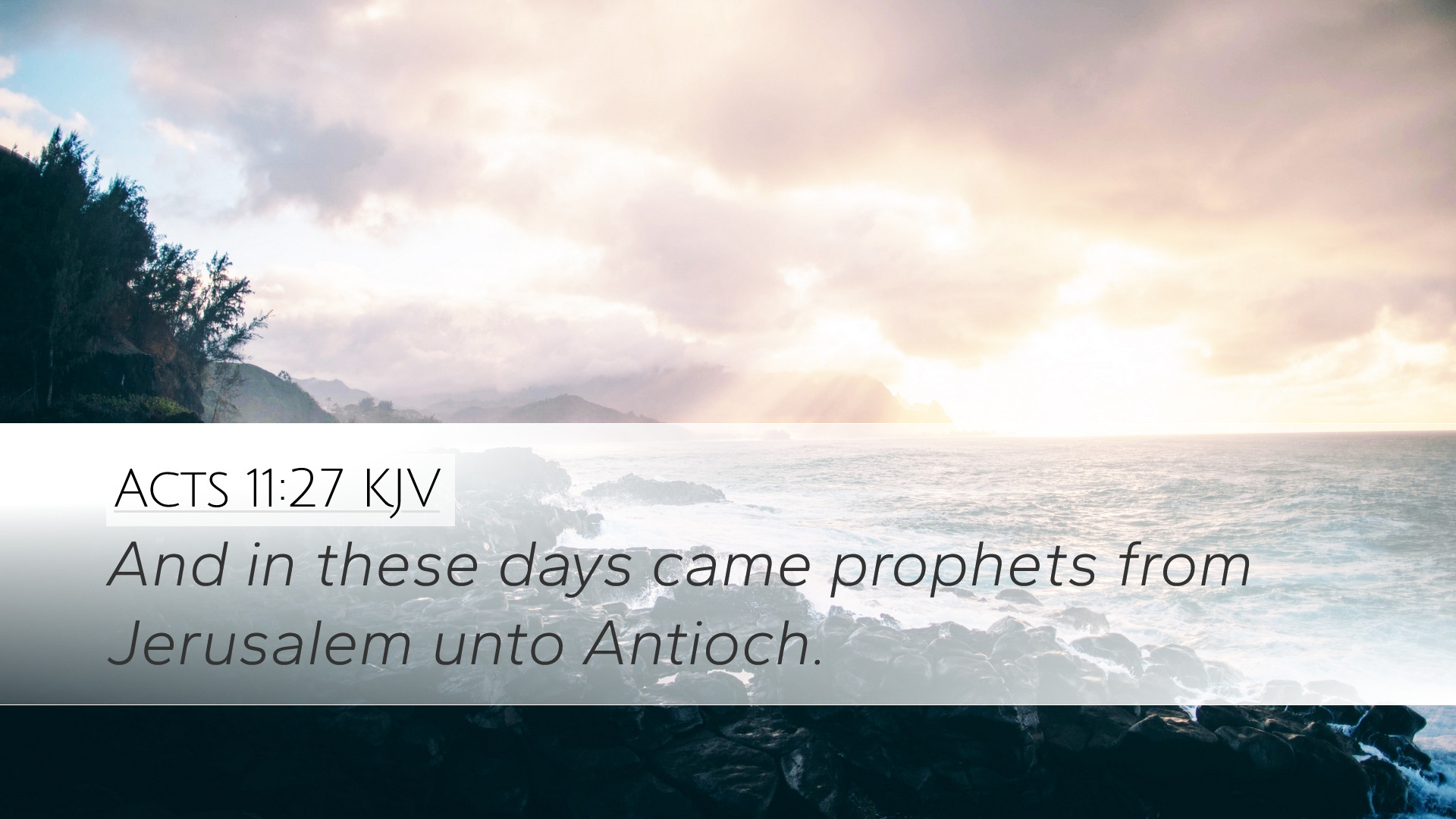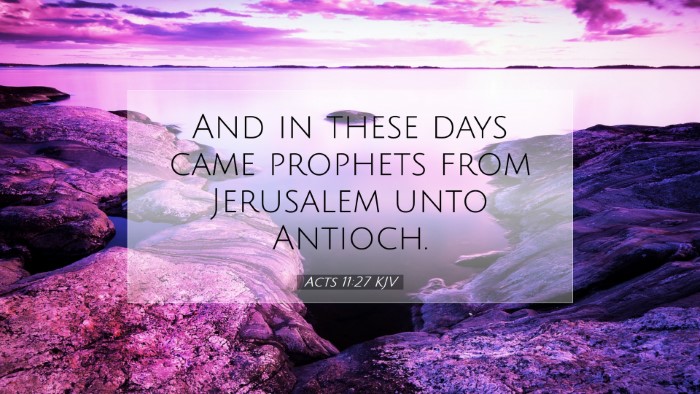Bible Commentary on Acts 11:27
Acts 11:27 reads: "And in those days came prophets from Jerusalem unto Antioch."
Introduction
This passage highlights a significant moment in the early church where prophetic figures emerge, signaling the Spirit's guidance in the church's development and the importance of prophetic ministry in the Christian community. Commentators such as Matthew Henry, Albert Barnes, and Adam Clarke provide valuable insights that help us understand the theological and practical implications of this verse.
Contextual Background
The setting of Acts 11 situates the church's expansion beyond traditional boundaries. Antioch emerges as a pivotal location for the Gentile mission, and the arrival of prophets from Jerusalem points to the connection and authority that the early church maintained. This serves as a reminder of the unity and continuity of God’s work through His people.
The Role of Prophets
Matthew Henry notes that the presence of prophets signifies God’s direct communication with His people. These prophets were divinely appointed messengers, bringing forth God’s will and guidance. Their arrival in Antioch symbolizes a crucial moment where the Spirit actively counsels the church regarding its mission.
Albert Barnes highlights that the ministry of prophets was essential in the early church for several reasons:
- Affirmation of Doctrine: Prophets offered clarifications and affirmations of the teachings of the apostles, ensuring doctrinal integrity.
- Encouragement and Edification: They provided comfort and strengthened believers' faith through prophetic insights.
- Guidance in Mission: Prophets played a crucial role in directing the church’s outreach, especially as it began to engage with Gentile communities.
Prophetic Importance in the Early Church
Adam Clarke emphasizes that the prophets’ presence assures the church that it is under divine direction. Their role was not merely to foretell future events but also to forthtell God’s counsel, applying His truths to contemporary situations. The early church saw prophets as vital for maintaining a connection to God’s will amidst changing cultural landscapes.
The Nature of Prophetic Ministry
Many scholars agree that the prophetic ministry is characterized by several key aspects:
- Spiritual Authority: Prophets operated under divine authority, thus their messages carried weight among the believers.
- Community Role: They served as leaders within the church community, guiding believers in collective discernment.
- Accountability: The congregation was encouraged to weigh prophetic messages against scripture, promoting healthy accountability.
The Significance of Antioch
Antioch represents a model of an empowered church engaging with a diverse population. Matthew Henry points out that the church in Antioch was characterized by unity amidst diversity—a theme that the arrival of the prophets reinforced. The narratives concerning Antioch display the church's commitment to spreading the Gospel, actively engaging with Gentiles, and responding to challenges with discernment.
Theological Implications
This passage also speaks to the ongoing nature of God’s revelation. The arrival of prophets signifies that God continues to communicate with His people. Albert Barnes observes that God’s voice through prophets invites believers to remain receptive and responsive to His direction, emphasizing the dynamic relationship between God and His congregational assemblies.
Application for Today’s Church
Pastors and theologians today can draw valuable lessons from Acts 11:27. The role of prophetic voices remains essential; however, they must be measured against the truth of Scripture. Furthermore, churches are encouraged to cultivate environments where prophetic insights are sought and received responsibly.
- Seeking Guidance: A modern application involves churches actively seeking God’s guidance in decision-making processes.
- Embracing Diversity: The church can learn from the unity of Antioch in embracing diverse voices and backgrounds.
- Fostering Community: Creating spaces for communal discernment can nurture spiritual growth among believers.
Conclusion
Acts 11:27 not only informs us about the historical context of the early church but also encourages contemporary believers to seek and receive prophetic guidance. By recognizing the importance and function of prophets, the church today can better navigate its mission, affirming its commitment to being led by the Spirit in a world that continues to change.


